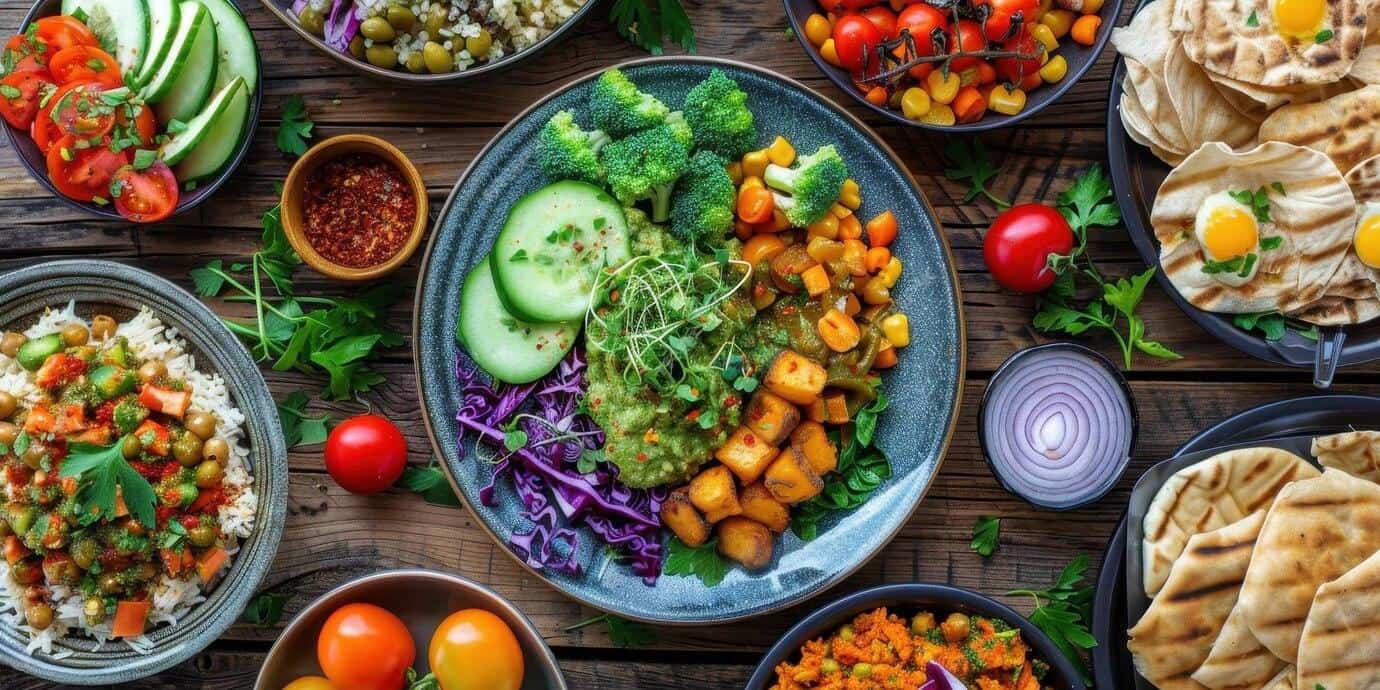Many people want to lose weight quickly, often turning to fad diets or extreme methods. However, these quick fixes don’t last and can harm your health. The key to lasting weight loss is a balanced diet that promotes both weight loss and good health.
In this guide, we’ll explore the essentials of a balanced diet plan for weight loss, including meal planning and what to eat, to help you reach your goals healthily.
What is a Balanced Diet?
A balanced diet supplies your body with the vital nutrients needed for optimal functioning. For optimal nutrition, most of your daily calorie intake should come from fresh fruits, vegetables, whole grains, lean proteins, and healthy fats.
A balanced diet aims to ensure that you get enough of the essential macronutrients and micronutrients your body needs for energy, repair, and growth.
The Role of Macronutrients in Weight Loss
Macronutrients, including carbohydrates, proteins, and fats, serve as the body’s main sources of energy. Each macronutrient plays a vital role in weight loss:
-
- Carbohydrates provide the body with quick energy, but complex carbs like whole grains, fruits, and vegetables should be the focus.
-
- Proteins are crucial for repairing tissues and building muscles, especially when you’re losing weight.
-
- Fats, particularly healthy fats like those from avocados, nuts, and olive oil, support hormone regulation and overall cell function.
The Importance of Micronutrients
Micronutrients, such as vitamins and minerals, are equally as vital as macronutrients. They play critical roles in metabolism, immune function, and muscle recovery, all of which contribute to a successful weight loss journey. Ensuring that you consume plenty of vitamins (like Vitamin D, C, and B-complex) and minerals (such as calcium, magnesium, and potassium) will aid your overall health during weight loss.
Advantages of Adopting a Balanced Diet for Weight Loss
When it comes to losing weight, a balanced diet offers several benefits:
Improves Metabolism
A balanced diet that includes all essential nutrients can boost your metabolism, helping your body burn calories more efficiently.
Prevents Nutrient Deficiencies
Many extreme diets cut out essential food groups, leading to deficiencies in vitamins and minerals. A balanced diet ensures your body gets all the nutrients it needs to stay healthy while losing weight.
Encourages Fat Loss While Preserving Muscle Mass
Consuming adequate amounts of protein and healthy fats in a balanced diet helps you lose fat while preserving muscle mass, which is key to maintaining a healthy metabolism.
How to Develop a Balanced Diet Plan for Effective Weight Loss
Creating a balanced diet plan for weight loss can be simple, but it requires some planning. Here’s a step-by-step guide:
-
- Calculate Your Caloric Needs: Use an online calculator or consult a dietitian to determine your daily calorie requirements based on your activity level, age, and weight goals.
-
- Focus on Nutrient-Dense Foods: Choose foods rich in nutrients but low in calories, such as leafy greens, lean proteins, and whole grains.
-
- Balance Your Macronutrients: Aim for a diet that provides 40% carbohydrates, 30% proteins, and 30% healthy fats. Adjust this ratio based on your body’s response.
-
- Include Plenty of Fiber: Foods high in fiber, such as vegetables and whole grains, will keep you full longer and reduce overeating.
Best Balanced Diet Plan for Weight Loss
Here’s a suggested 7-day meal plan to help you begin your journey:
-
- Day 1:
-
- Breakfast: A bowl of Greek yogurt topped with a medley of mixed berries and a sprinkle of chia seeds.
-
- Lunch: Grilled chicken salad with quinoa and a lemon vinaigrette.
-
- Dinner: Oven-roasted salmon served with steamed broccoli and brown rice.
-
- Snacks: Almonds and an apple.
-
- Day 1:
-
- Day 2:
-
- Breakfast: Oatmeal with almond butter and banana slices.
-
- Lunch: Turkey wraps with spinach, avocado, and whole-grain tortilla.
-
- Dinner: Stir-fried tofu with mixed vegetables and couscous.
-
- Snacks: Carrot sticks with hummus.
-
- Day 2:
This sample continues for the rest of the week, focusing on balanced meals that include lean proteins, healthy fats, and fiber-rich foods.
Balanced Diet Food List for Sustainable Weight Loss
To ensure sustainability, focus on the following nutrient-dense foods:
-
- Proteins: Chicken breast, tofu, lentils, fish, eggs.
-
- Whole Grains: Brown rice, quinoa, oats, whole-grain bread.
-
- Fruits and Vegetables: Spinach, kale, apples, berries, carrots.
-
- Healthy Fats: Olive oil, avocado, almonds, flaxseeds.
-
- Dairy: Low-fat yogurt, skim milk, cottage cheese.
These foods not only support weight loss but also nourish your body for long-term health.
How to Adapt Your Diet Over Time
As you progress in your weight loss journey, you may need to adjust your diet to meet your evolving needs.
How to Maintain Weight Loss with a Balanced Diet
Once you’ve reached your weight goal, transitioning into maintenance mode is essential. Continue eating a balanced diet with slightly increased calorie intake to sustain your weight while staying healthy.
Tips for long-term success include:
-
- Track your progress: Monitor your food intake and physical activity regularly.
-
- Stay flexible: Allow room for occasional indulgences but return to balanced eating quickly.
Conclusion
A balanced diet is the foundation for sustainable weight loss and long-term health. By focusing on whole foods, appropriate portions, and a diverse nutrient intake, you can achieve your weight loss goals while feeling energized and healthy.
Remember, the key to lasting success lies in consistency and flexibility, allowing you to adapt your diet as needed without losing sight of your goals.
FAQs
1. How quickly can I expect to lose weight with a balanced diet?
Weight loss varies, but a healthy rate is around 1-2 pounds per week.
2. Can I eat carbs and still lose weight?
Yes, carbs are essential for energy. Focus on complex carbohydrates like whole grains rather than refined carbs.
3. How important is exercise when following a balanced diet for weight loss?
Exercise complements a balanced diet, helping you burn calories and build muscle.
Waite and sea – BECOME AMAZING






